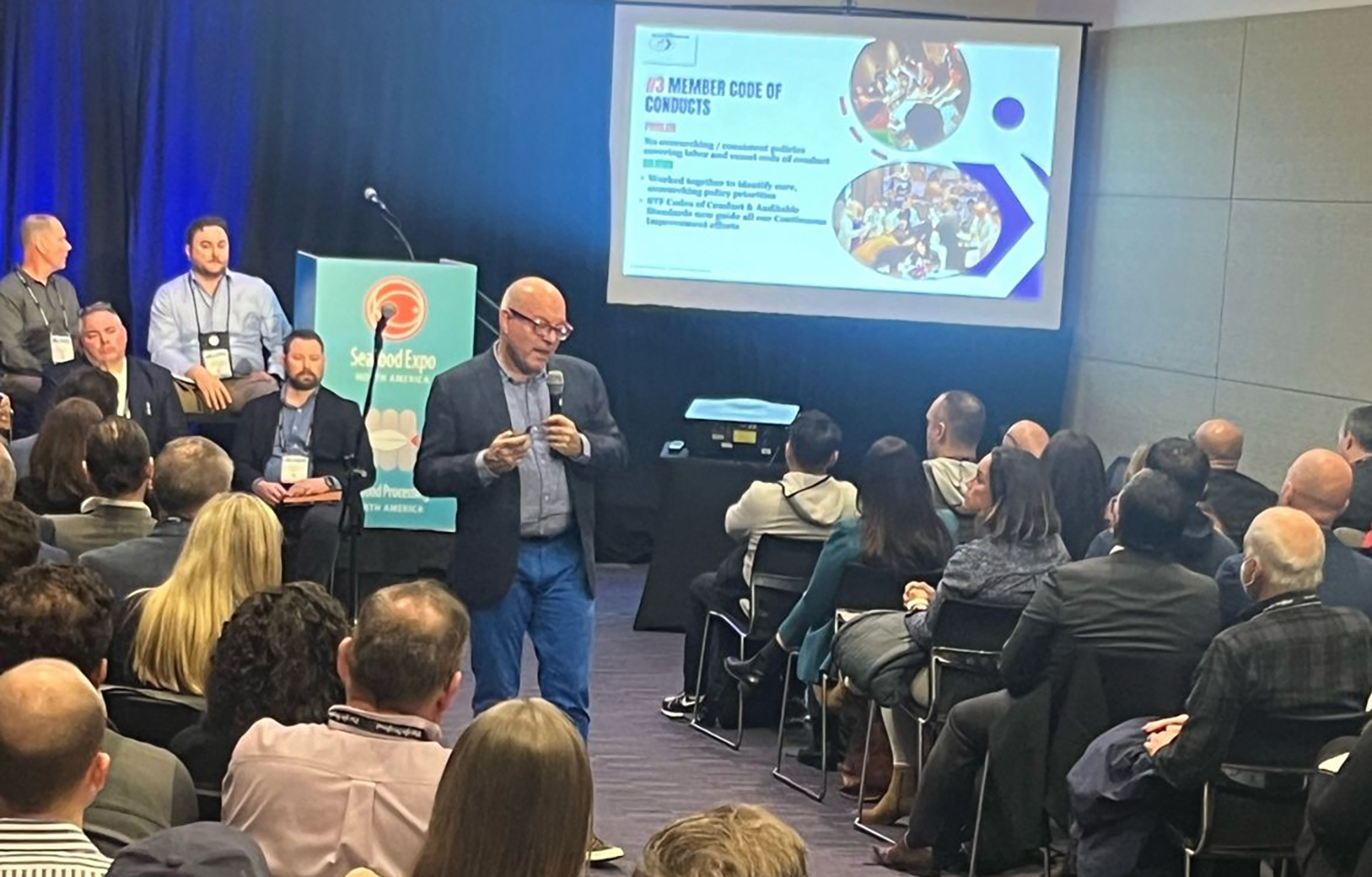In the wake of Corporate Accountability Lab, Associated Press, and Outlaw Ocean reports alleging forced labor and antibiotic use in the Indian shrimp industry, the Seafood Task Force (STF) has committed itself and its partners, some of which include Indian shrimp companies, toward taking the lead on improving labor practices across the industry.
In early March, the STF, a U.S.-based nonprofit trade association representing major retailers, brands, foodservice companies, and supply chain partners, added 17 new Asian member companies into its ranks, including top Indian shrimp exporter Devi Sea Foods.
The new additions, as well as the focus the task force has placed on South and Southeast Asia, has increased the importance of an upcoming STF meeting in Mumbai in late April, where the issues featured in the reports will be discussed.
“This meeting will apply STF-tested models and approaches to the new group, with meeting agenda highlights including bringing all key stakeholders together … sharing best practices from our work in Thailand … [and] setting clear expectations,” STF Executive Director Martin Thurley said in a recent member briefing.
The Seafood Task Force was created in 2014 to address illegal and forced labor in Thailand’s seafood supply chain, an issue brought to light by an Associated Press investigation. Since its inception, the STF has concentrated on pushing its members to meet ESG standards and due diligence requirements.
On 10 March, a panel at the 2024 Seafood Expo North America featuring representatives from STF members Bumble Bee, Starkist, Costco, Walmart, and Thai Union focused on the task force’s step-by-step process to help restore global market confidence in seafood sourced from Asia.
“We are imperfect. We use that as our internal motto,” Thurley said. “We do not let perfection get in the way of progress. We want retailers and brands to have confidence in the supply chain all the way back to the vessels.”
Thurley specifically highlighted the STF’s work with small-scale farmers in Thailand and the effectiveness of its “boots-on-the-ground” approach to ensuring compliance and responsible practices.
“It’s important to go discover and find out what’s going on in these operations,” Thurley said. “When talking about Thailand, we went down and visited and did such things as going to a recruitment agency to fully understand what was going on.”
Thurley said the STF is effective at driving change due to the range of backgrounds of its members, which include retailers, brands, and NGOs.
“We work together; every member that joins allows us to bring in more of their supply chain, which gives us more leverage, which gives us more ability to empathize, which then gives us more ability to solve problems,” Thurley said.
STF is committed to steering long-term change across the industry, rather than putting together a piecemeal emergency response to the crisis du jour, whatever that is at the moment, Bumble Bee Vice President of Responsible Sourcing and Sustainability Traci Linder said.
“What typically happens is when allegations come out about crimes aboard fishing vessels or in processing facilities, stakeholders can be reactionary, and companies point fingers at one another or NGOs point fingers at companies; that’s not solving the issue,” Linder said. “We’re here together to work across companies, governmental bodies, and NGOs to solve the issue.”
As for what the STF plans to accomplish in 2024, the task force is directly committed to focusing on India, Thurley said.
“For this year, we have 98 assessments in the works among three countries [Vietnam, Indonesia, and India], but India is the big one.” Thurley said. "This stuff’s not going away. We have to recognize it, and we have to work to use the information that we have from these reports to improve step by step every day.”








